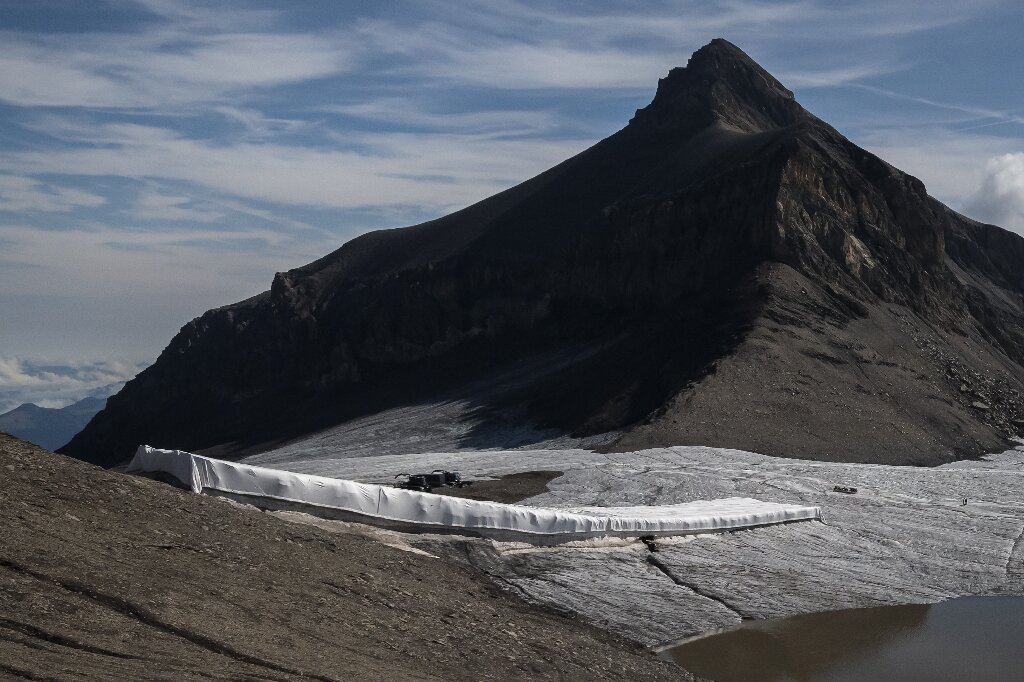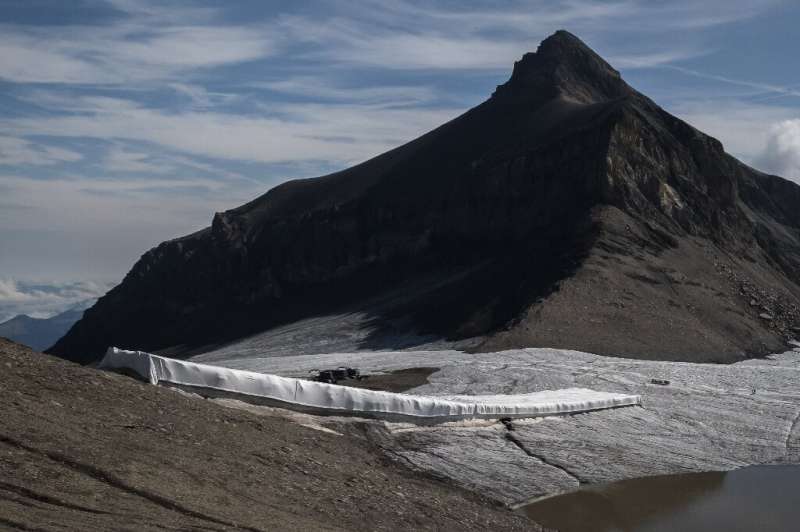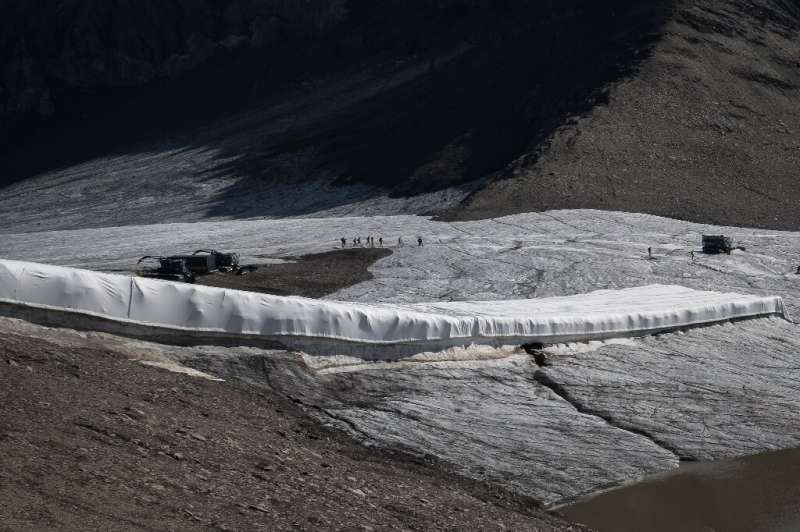

The thick layer of ice that has covered a Swiss mountain pass for centuries will have melted away completely within a few weeks, a ski resort said Thursday.
Following a dry winter, the summer heatwaves hitting Europe have been catastrophic for the Alpine glaciers, which have been melting at an accelerated rate.
The pass between Scex Rouge and Tsanfleuron has been iced over since at least the Roman era.
But as both glaciers have retreated, the bare rock of the ridge between the two is beginning to emerge—and will be completely ice-free before the summer is out.
“The pass will be entirely in the open air in a few weeks,” the Glacier 3000 ski resort said in a statement.
While the ice measured around 15 meters (49.5 feet) thick in 2012, the ground underneath “will have completely resurfaced by the end of September”.
The ridge is at an altitude of 2,800 meters in the Glacier 3000 ski domain and effectively marks the border between the Vaud and Wallis cantons in western Switzerland.

Skiers could glide over the top from one glacier to the other. But now a strip of rock between them has emerged, with just the last remaining bit of ice left.
Glaciologist Mauro Fischer, a researcher at Bern University, said the loss of thickness of the glaciers in the region will be on average three times higher this year compared to the last 10 summers.
Austrian scientists race to reveal melting glaciers’ secrets
© 2022 AFP
Citation:
Swiss mountain pass set to lose all ice within weeks (2022, August 11)
retrieved 11 August 2022
from https://phys.org/news/2022-08-swiss-mountain-ice-weeks.html
This document is subject to copyright. Apart from any fair dealing for the purpose of private study or research, no
part may be reproduced without the written permission. The content is provided for information purposes only.